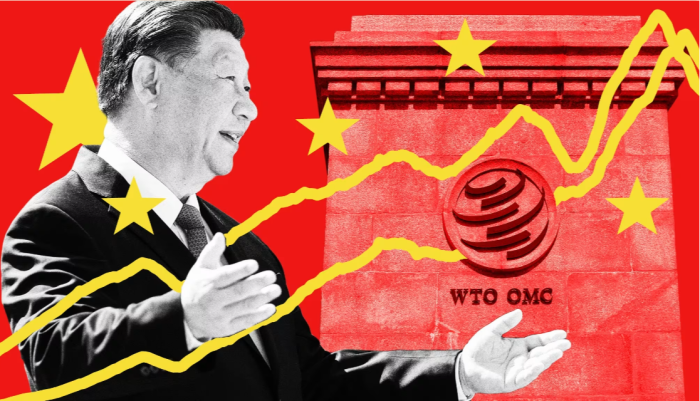Unlock the Editor’s Digest for free
Good morning. We have an exclusive story today on China’s growing surveillance capabilities in the sea near Taiwan.
Chinese maritime research vessels have dramatically increased incursions into waters just 24 nautical miles off Taiwan. The latest operations include an unprecedented sailing by China’s newest research ship, a drone carrier with links to the People’s Liberation Army, down the full length of the Taiwanese east coast in November.
The Zhu Hai Yun’s voyage was one of nine such intrusions since September, a sharp uptick from just two in each of the previous three years, according to tracking data of nearly 80 ships from Spire Global, a satellite data company, analysed by the FT.
China frequently uses vessels operated by government and military-affiliated research institutes to assert its claims in disputed waters. These ships can measure water temperature, salinity and ocean currents and map the seabed — data that can be used for a broad range of scientific research, but also for naval warfare.
“Where the maritime research vessels go is where Chinese submarines will go in the future,” said Christopher Sharman, director of the China Maritime Studies Institute at the US Naval War College.
Here’s the full story — complete with graphics showing the activity of the Chinese vessels.
-
More China news: China’s Ant Group is bidding against Citadel Securities for Credit Suisse’s Chinese securities unit, a move that will test Beijing’s appetite for letting the Jack Ma-founded company expand again after a long-running crackdown
And here’s what else I’m keeping tabs on today:
-
Economic data: Japan publishes its consumer price index, which is expected to show inflation rising 1.8 per cent in January from a year ago, the lowest rate in nearly two years. (Reuters)
-
Elections: Israel holds its first local elections since the war in Gaza began, while US presidential primary elections take place in the state of Michigan.
-
Brics: Finance ministers and central bank governors from the group of emerging nations meet in São Paulo, Brazil.
Five more top stories
1. Sweden has overcome the last remaining hurdle in its quest to become a Nato member as Russia’s full-scale invasion of Ukraine redraws the geopolitical map. Hungary’s parliament voted yesterday to approve Stockholm’s application to become the 32nd member of the military alliance, which could now be formalised as soon as Friday.
2. BYD has rejected EU accusations that the success of Chinese car companies stemmed from state aid as Brussels forges ahead with a probe into whether local subsidies were helping electric cars made in China undercut European-made models. The Chinese group’s European head Michael Shu said BYD’s success was due to “unique technology” and “management efficiency”, in the company’s first public comment on the investigation launched last year.
3. South Korean officials unveiled measures yesterday to boost shareholder returns, as Seoul seeks to replicate Japan’s success in raising stock valuations. The Korean proposals include a new “Korea Value-Up index” — mirroring the Tokyo exchange’s “name and shame” regime — as well as tax incentives for businesses that prioritise shareholder returns. But Korean investors said the reform measures fell short of expectations.
4. Israel launched air strikes on what it said were Hizbollah targets near the north-eastern Lebanese city of Baalbek, in its deepest attack into Lebanon since the war in Gaza triggered renewed hostilities with the Iran-backed militant group. The Israeli military said yesterday it had hit sites “used by Hizbollah’s aerial defence array” in the Bekaa Valley in response to the launch of surface-to-air missiles by the group. Here’s the latest on the Israel-Hamas war.
-
Palestinian PM resigns: Mohammad Shtayyeh has resigned from his role as Palestinian prime minister, confirming a long-anticipated move that could set the stage for a new technocratic government responsible for the reconstruction of Gaza.
5. Microsoft has struck a deal with French artificial intelligence start-up Mistral as it seeks to broaden its involvement in the fast-growing industry beyond OpenAI. The tech giant’s “multiyear partnership” with Mistral aims to help the 10-month-old company bring its AI models to market. As part of the deal, Microsoft will take a minor stake in Mistral although the financial details have not been disclosed.
The Big Read

The World Trade Organization — which holds its biennial ministerial conference this week — has fallen hostage to sharp Sino-US divisions as trade friction escalates between China and the west. As the world trade body falters, Beijing is accelerating efforts to construct an alternative trade architecture that is insulated from Washington’s influence and centred upon the developing world.
We’re also reading . . .
-
Squawkus about Aukus: The strategic case for the Australia-UK-US pact is sound. But technical and political doubts are growing, writes Gideon Rachman.
-
India’s election: The ruling Bharatiya Janata party is “massively ahead” of rivals in using social media influencers to boost support among the young.
-
Toyota’s bet on hybrid cars: What was once regarded as heresy from the Japanese automaker is being reassessed, as enthusiasm wanes for battery electric vehicles. Was Toyota right all along?
Chart of the day

Citigroup has appointed top JPMorgan investment banker Vis Raghavan as head of banking, completing its new management team and attempting to jump-start a business that has consistently lagged behind rivals JPMorgan, Bank of America and Goldman Sachs.
Take a break from the news

As management jobs go, human resources is probably the most thankless. HR professionals are supposed to be the bridge between senior leaders and rank-and-file staff, but often end up receiving flak from both. It doesn’t have to be this way, writes Stefan Stern.
Keep up with the trends shaping the world of work with Isabel Berwick’s Working It newsletter. FT subscribers can sign up here to get Working It in your inbox every Wednesday.
Additional contributions from Irwin Cruz and Gordon Smith
Also Read More: World News | Entertainment News | Celebrity News








